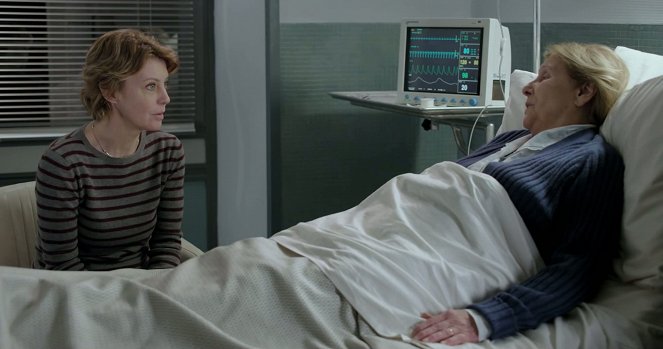Directed by:
Nanni MorettiCinematography:
Arnaldo CatinariCast:
Margherita Buy, John Turturro, Giulia Lazzarini, Nanni Moretti, Beatrice Mancini, Stefano Abbati, Enrico Ianniello, Anna Bellato, Lorenzo Gioielli (more)VOD (1)
Plots(1)
Margherita (Buy) is directing a new social drama, set against the backdrop of an industrial dispute. Try as she may to remain professional, the emotional turmoil of her private life is taking a toll: an affair with one of her actors (Enrico Ianniello) has come to an end, her adolescent daughter (Beatrice Mancini) is failing Latin, but most troubling is the recent hospitalization of her formidable, beloved mother Ada (Giulia Lazzarini). Whilst her brother Giovanni (Moretti) gradually allows himself to be engulfed by his mother’s last days, taking extended leave to prolong his bedside vigil, Margherita’s tough schedule makes more than a daily visit tricky. Meanwhile, the famous American actor Barry Huggins (the fabulous John Turturro) has arrived, a needy and capricious personality whose brash presence on set sees things go from bad to worse, and whose general ineptitude might finally push Margherita over the edge... (Madman Entertainment)
(more)Videos (8)
Reviews (1)
Despite having a serious central theme, Moretti’s two previous films, The Caiman and We Have a Pope, were close to satirical comedies in terms of genre. Conversely, My Mother is a very sensitive and only exceptionally humorous study of coping with one’s own mortality and the loss of a loved one. How can we continue in our own lives when we are left behind by the person to whom we owe our very existence and whom we have accepted as an important part of our world? Moretti thematically returns to his most famous film, The Son’s Room, while also adding his favourite motif of reflecting on his own craft through the female protagonist’s profession. ___ Shooting a political drama about a strike by factory workers serves as a distraction for Margherita. She runs away from a very serious event in her life (the inevitable death of her mother) to an event that she has elevated to a matter of importance in her own eyes. Displacing death with art was clearly a tactic that Moretti had used himself when his own mother died during the making of We Have a Pope. It is as if he wanted to reconstruct this situation in his new film by dramatic means and find within it both meaning and a lesson for his future life. ___ The core of the story should obviously be the relationship between Margherita, Giovanni and Ada. This can also be seen from the sketch-like depiction of the film crew composed of entertaining caricatures without greater depth. The superficiality of the film’s storyline with moments of somewhat forced humour contrasts so sharply with the psychological depiction of the family that we get the feeling that we are watching two incongruous films. ___ Dream sequences and flashbacks comprise an equally jarring element of this otherwise realistic and linearly plotted film. This apparently involved creative intent and a means of highlighting the conflict between one’s personal and professional lives. However, the sudden changes in tone prevent us from fully appreciating the psychological authenticity, emotional sincerity and economy of expression with which Moretti is able to depict the inner experiences of his characters, in whose case he gets by with revealing details and unobtrusive staging of astutely observed situations. ___ The film’s style does not draw unnecessary attention to itself and is fully subordinated to the comprehensibility of the characters’ dialogue and feelings. Despite the melodramatic nature of the plot, the actors do not resort to theatrical gestures when expressing themselves. With the exception of Torturro, whose performance is guided by the screenplay, their acting is as subdued as the whole film itself. My Mother is a placidly flowing contemplation of one’s attitude toward death and a stimulating humanistic drama packed with grief, but also containing uplifting moments of human understanding. 65%
()


